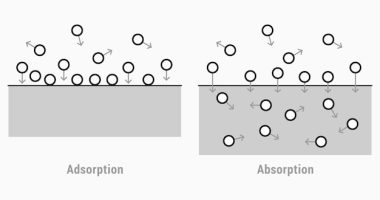In recent years, the urban farming health benefits review has gained significant attention among scholars and policymakers alike, focusing on how local food production in urban areas can contribute to improved public health. This study, led by Guillermo Cano-Verdugo, Brianda Daniela Flores-García, Georgina Mayela Núñez-Rocha, María Natividad Ávila-Ortíz, and María Argelia Akemi Nakagoshi-Cepeda, emerges as a thorough systematic review aiming to decipher the veracity of such claims by systematically evaluating the health impacts connected to urban farming practices.
Urban agriculture, envisioned as the cultivation, processing, and distribution of food in or around urban areas, encompasses a variety of plant and animal cultivation close to or within a city. This research primarily investigates the triple facets of health — physical, mental, and social — that are influenced by the proximity and engagement with urban farming environments. As contemporary urban centers grapple with challenges such as food insecurity, environmental sustainability, and chronic health conditions, urban farms potentially offer a verdant oasis that could address these issues, thereby enhancing community health and wellbeing.
The researchers methodologically scanned several databases including PubMed, DOAJ, CAB Abstracts, and NIH, for papers published on the topic, regardless of the time of publication, reflecting a comprehensive approach to gathering evidence. Following rigorous screening protocols that whittled down thousands of potential studies to a core collection, the team applied an analytic narrative synthesis to discuss the findings from seven pertinent studies.
Initial findings suggest that participation in urban farming significantly boosts physical health by promoting physical activity, enhancing dietary habits through access to fresh produce, and reducing harmful behaviors like drug use. In terms of mental health, engagement with urban green spaces is correlated with reduced stress levels and enhanced relaxation. Socially, these community spaces foster a sense of belonging, offer opportunities for personal growth, and elevate overall happiness.
This review contributes to the ongoing discourse about the role of urban farming in shaping health outcomes, highlighting a predominance of positive effects. Nonetheless, the study also underscores the necessity for further empirical research to solidify understanding and devise informed urban planning and public health policies that harness the benefits of urban farming.
Urban farming, also known as urban agriculture, encompasses the practice of cultivating, processing, and distributing food in or around urban areas. This innovative form of agriculture extends to animal husbandry, aquaculture, agroforestry, and horticulture, and is increasingly recognized not just for its role in food production but also for its contribution to environmental sustainability, economic resilience, and particularly, public health. The term ‘urban farming health benefits review’ reflects a growing interest in the interdisciplinary research examining how these agricultural practices within urban settings influence health outcomes.
The integration of urban farming initiatives into city landscapes has been linked with multiple health and social benefits. These include improved access to fresh, nutritious foods, increased physical activity, and enhanced mental well-being. Urban farms can be as small as a backyard garden or as large as several acres of intensively cultivated land. Community gardens are a common form of urban farming, providing not only food but also a shared space for community members to connect with nature and each other.
A fundamental aspect of urban farming is its ability to address food deserts—areas where access to affordable, healthy food options (particularly fresh fruits and vegetables) is limited. By localizing food production, urban farms can enhance food security and reduce the environmental footprint associated with transporting food items over long distances. This local approach to farming presents a sustainable alternative that supports the local economy and reduces waste and pollution.
Furthermore, the role of urban farming goes beyond merely providing physical health benefits. It also offers significant mental health advantages by encouraging participation, which can reduce feelings of isolation and promote feelings of community belonging and collective purpose. The physical activity involved in gardening has been shown to reduce stress, anxiety, and depression, contributing to overall mental health and well-being.
Moreover, the educational aspect of urban farming should not be overlooked. These initiatives serve as practical learning spaces for people of all ages, educating participants about the importance of sustainable agriculture, nutrition, and the environment. This education can lead to better personal health practices and increased environmental awareness, fostering a more ecologically responsible community.
Health equity is another critical area impacted by urban farming. Communities that engage in urban agriculture often see improved social determinants of health, such as increased social cohesion and reduced socioeconomic disparities. This is particularly important in urban areas, where economic and racial inequalities can exacerbate disparities in health access and outcomes. Urban farming initiatives can empower communities, giving control over food sources and stimulating local economic growth through creation and support of local businesses and markets.
Looking at the broader picture, urban farming also contributes to ecological health. By increasing green spaces and using sustainable practices, urban farms can help mitigate the urban heat island effect, reduce city pollution levels, and enhance biodiversity. These environmental improvements are integral to public health, as they contribute to healthier urban environments that promote physical activity and reduce harmful pollutants.
In conclusion, the urban farming health benefits review highlights a multiplicity of advantages ranging from enhanced food security, economic and ecological benefits, to direct and indirect health outcomes. As urban populations continue to grow, so does the importance of developing sustainable practices that address the numerous challenges of urban living. Urban farming emerges not only as a strategy for food production but as a comprehensive approach to improving overall urban health and quality of life, making it a vital component of urban development and planning.
## Methodology
### Study Design
The study aimed to meticulously investigate the impact of urban farming on health outcomes, following a mixed-methods approach. This dual approach integrated a quantitative assessment of health metrics derived from urban farming participants with qualitative data gleaned through interviews and focus groups. Central to the study was the exploration of the urban farming health benefits review, which entailed a holistic examination of physical, mental, and social health dimensions, as detailed below.
#### Quantitative Measures
Given the scope of urban farming’s suspected benefits, our quantitative analysis focused primarily on health outcomes linked to physical activity, dietary habits, and exposure to green spaces, which are key components of urban agricultural activities. We developed a comprehensive participant survey that assessed dietary changes, frequency of physical exercise, and overall physical health status before and after involvement in urban farming projects. These projects included community gardens, home gardens, rooftop farms, and other urban agricultural initiatives. Participants were selected randomly from various demographic backgrounds to ensure a broad representation of the urban population.
We utilized standardized questionnaires to measure changes in fruit and vegetable intake, BMI (Body Mass Index), and mental health statuses, such as stress and depression levels. These tools included the Food Frequency Questionnaire (FFQ), the International Physical Activity Questionnaire (IPAQ), and the General Health Questionnaire (GHQ). Additionally, wearable technology was employed to corroborate self-reported physical activity levels with objective data.
#### Qualitative Assessments
Complementing the quantitative data, the qualitative component of the study pursued deeper insights into the personal experiences and perceptions of urban farming participants. We conducted focus groups and in-depth interviews structured around several core themes: perceived benefits, motivations for participation, barriers experienced, and overall satisfaction with urban farming. These discussions were instrumental in elucidating the psychosocial impact of urban farming, exploring themes such as community bonding, empowerment, stress relief, and changes in environmental awareness.
The qualitative discussions also ventured into the economic aspects of urban farming, such as cost savings on food and potential income from selling produce. Interviews were recorded, transcribed verbatim, and analyzed using thematic analysis to identify recurrent themes across the narratives.
#### Study Sites and Sample Selection
The research was conducted at multiple urban farming sites selected to cover a diverse range of urban farm types and sizes, located in several cities across the country. These sites were chosen based on their established infrastructure, participant engagement levels, and variability in scale and operational focus. The participant cohort comprised of regular urban farm users, spanning a wide array of ages, ethnicities, and socio-economic statuses. The inclusion criteria were designed to select individuals who have been actively participating in urban farming activities for at least six months, aiming to capture substantial insight into the sustained engagement impacts.
#### Data Analysis
Quantitative data collected via surveys and wearable devices were analyzed using statistical software to perform correlations, regressions, and other forms of statistical testing to identify significant patterns and trends. For our qualitative data, thematic analysis enabled the identification of predominant themes and sub-themes related to urban farming’s perceived health benefits. This mixed-methods data analysis approach assisted in triangulating data from different sources to form a comprehensive understanding of the health impacts of urban farming.
In summary, the study design committed to combining diverse methodologies to explore the intricacies of urban farming health benefits thoroughly. By engaging urban residents directly and assessing health outcomes systematically, the study sought to provide robust insights into the multi-dimensional health benefits of urban farming, contributing valuable knowledge to the field of urban agriculture research. This in-depth review of urban farming health benefits not only underscores the potential physical and mental health improvements but also stresses the importance of community and ecological health in urban settings.
Findings
The research conducted on the impacts of urban farming has shed considerable light on its multifaceted benefits, particularly in the realm of public health. This urban farming health benefits review synthesizes findings from various studies to present a comprehensive overview of how urban agriculture influences physical health, mental well-being, and community health.
Firstly, the physical health benefits associated with urban farming are pronounced. Numerous studies have pointed out that urban gardens provide fresh produce which is less likely to contain the agrochemicals commonly used in large-scale farming. This access to fresh, nutritious food is particularly beneficial in urban areas, which are often plagued by food deserts where processed foods are more readily available than fresh produce. As a result, urban dwellers engaged in farming report higher intake levels of fruits and vegetables, which are crucial in preventing chronic diseases such as obesity, diabetes, and hypertension. This direct nutritional benefit is a key outcome of urban agriculture initiatives.
Moreover, urban farming encourages physical activity. Gardening tasks such as planting, weeding, and harvesting are physically engaging and promote fitness. Regular participation in these activities can enhance overall physical health by improving endurance, strength, and flexibility. It also potentially reduces the risk of chronic illnesses by contributing to a more active lifestyle. The interaction with soil has also been reported to have its own health benefits. The bacteria Mycobacterium vaccae found in garden dirt has been linked to improved immune system function and an increase in serotonin production, which could explain the mood improvements reported by many gardeners.
In terms of mental health, the impact of urban farming is profoundly positive. Engaging with nature has been consistently associated with reductions in stress, anxiety, and depression. The green spaces provided by urban farms offer a rare tranquility in busy urban settings, creating peaceful enclaves for community members to unwind. The psychological benefits of green spaces, such as improved mood and reduced mental fatigue, are well-documented in environmental psychology. Moreover, the sense of accomplishment that comes with growing and harvesting one’s own food can boost self-esteem and improve overall mental well-being.
Community health also sees remarkable improvements due to urban farming. These agricultural initiatives often transform unused or neglected areas into vibrant community hubs, improving neighborhood aesthetics and thus resident satisfaction. Community gardens are particularly effective in fostering social ties, as they involve shared responsibilities and goals. This collaborative environment helps build a sense of community and belonging among participants, which is crucial for mental health. Additionally, these communal spaces can help reduce crime rates by increasing community vigilance and providing a positive environment for youth engagement.
Equally important are the educational opportunities provided by urban farms. They serve as excellent platforms for nutrition and environmental education, teaching community members about where food comes from and how it can be sustainably grown. This educational aspect is essential for long-term health benefits, as it promotes better dietary choices and a deeper appreciation for sustainable living practices.
In conclusion, the urban farming health benefits review underscores the significant positive impacts of urban agriculture on individual and community health. By providing access to fresh produce, encouraging physical activity, offering a sanctuary for mental health relief, fostering community ties, and educating the public, urban farms play a critical role in enhancing the health profile of urban populations. As cities continue to expand, integrating more green spaces and farming initiatives could be pivotal in addressing the complex health challenges posed by urban living. These findings not only highlight the existing advantages but also reinforce the potential for urban farming as a sustainable health intervention in urban planning and policy development.
Conclusion
In reviewing the broader implications of urban farming on individual and community health, it becomes evident that this practice offers a multitude of benefits that are critical in addressing many of the urban challenges faced today. The future of urban agriculture seems promising, with significant potential to transform city environments into bastions of health, sustainability, and social welfare. As we delve deeper into the ‘urban farming health benefits review,’ it is clear that further research and development could propel these benefits to new heights, substantially impacting urban populations globally.
Urban farming has demonstrated considerable health benefits ranging from improved access to nutritious foods to psychological well-being and social cohesion. Access to fresh produce, often a challenge in urban centers marked by food deserts, is significantly ameliorated through community gardens and rooftop farms. This can lead to a decrease in poor nutrition-related diseases like obesity and type 2 diabetes, which are prevalent in cities due to high densities and low access to fresh food.
The mental health benefits linked with urban agriculture are equally notable. Engaging with nature through farming can reduce stress levels, enhance mood, and promote a sense of community among urban dwellers. This aspect of urban farming not only contributes to physical health through stress reduction but also fosters a sense of belonging and community, crucial elements in urban spaces where anonymity can often lead to social isolation.
However, there are several challenges and areas needing further exploration to maximize these health benefits. For instance, issues concerning land use rights, sustainable water and resource use, and comprehensive policies that support urban agricultural initiatives require more in-depth analysis and solutions. Future research should also consider the environmental impacts of urban farming, including its role in reducing carbon footprints and managing urban waste, to provide a holistic view of its sustainability.
Moreover, as urban farming continues to grow, an interdisciplinary approach is essential. Collaboration between urban planners, health professionals, environmentalists, and community organizations will be crucial in advancing practices that optimize health benefits while considering economic viability and environmental sustainability. Educational programs that focus on teaching urban residents about the benefits of urban farming, and how to participate, could enhance community engagement and scalability of such initiatives.
Lastly, policy frameworks that support urban farming initiatives, by providing subsidies, grants or tax breaks, could encourage more cities to adopt these practices. A global exchange of ideas and success stories may also inspire further implementation and support from governments at all levels.
In conclusion, the continued review and research into urban farming health benefits are vital. Such efforts will provide a greater understanding and refinement of the strategies needed to enhance the impact of urban farming on urban health and well-being. As more evidence emerges on this front, urban farming could become a cornerstone of urban public health strategies, leading to healthier, more sustainable cities around the world.
References
https://pubmed.ncbi.nlm.nih.gov/39283214/
https://pubmed.ncbi.nlm.nih.gov/39236181
https://pubmed.ncbi.nlm.nih.gov/38963961/









